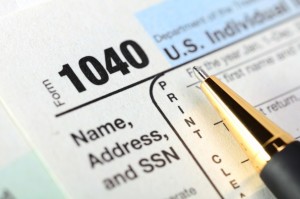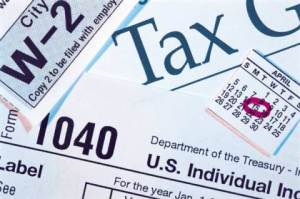 Today’s top story: 12 freebies and deals for Tax Day 2018. Also in the news: 3 ways parents can help grown kids own a home, why your parents’ financial advice is probably wrong (for you), and what you should know about getting an advance on your tax refund.
Today’s top story: 12 freebies and deals for Tax Day 2018. Also in the news: 3 ways parents can help grown kids own a home, why your parents’ financial advice is probably wrong (for you), and what you should know about getting an advance on your tax refund.
12 Freebies and Deals for Tax Day 2018
A little something to ease the pain.
3 Ways Parents Can Help Grown Kids Own a Home
Ground rules are important.
Your Parents’ Financial Advice Is Probably Wrong (for You)
However well-intentioned.
Thinking about getting an advance on your tax refund? Here’s what you should know
Watch for hidden fees.
 Today’s top story: 4 blunders to avoid when doing your own taxes. Also in the news: What to do if your W-2 is missing, 6 key investing concepts, and why there’s no such thing as a dumb question when it comes to money.
Today’s top story: 4 blunders to avoid when doing your own taxes. Also in the news: What to do if your W-2 is missing, 6 key investing concepts, and why there’s no such thing as a dumb question when it comes to money.  Today’s top story: 5 signs you’re getting bad financial advice. Also in the news: What a financial advisor does, how Roth IRAs can help in an emergency, and why Wells Fargo customer should check their bank accounts.
Today’s top story: 5 signs you’re getting bad financial advice. Also in the news: What a financial advisor does, how Roth IRAs can help in an emergency, and why Wells Fargo customer should check their bank accounts. Today’s top story: How not to go broke attending holiday parties. Also in the news: Self-taught financial advisers keep it real about money, how to determine if your taxes are going up, and how to spend your extra FSA money.
Today’s top story: How not to go broke attending holiday parties. Also in the news: Self-taught financial advisers keep it real about money, how to determine if your taxes are going up, and how to spend your extra FSA money.
 Today’s top story: 10 tax forms you need to know before you file. Also in the news: How Blacks took banking into their own hands, understanding collision and comprehensive insurance, and why you shouldn’t take financial advice from commercials.
Today’s top story: 10 tax forms you need to know before you file. Also in the news: How Blacks took banking into their own hands, understanding collision and comprehensive insurance, and why you shouldn’t take financial advice from commercials.